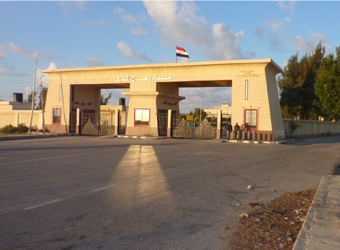Egyptian authorities on Saturday opened the Rafah border crossing with the besieged Gaza Strip for the first of a three-day opening.
The Gaza borders and crossings committee said in a statement that the borders were opened on both sides Saturday morning “for humanitarian cases and people stranded on both sides.”
The statement added that the committee had published lists of approved travellers prior to Saturday morning, designating certain days for certain passengers to travel.
Egyptian authorities had announced on Thursday that they would be opening the Rafah crossing for three days starting on Saturday, with security sources telling Ma’an that the decision to open the border came upon order from Egyptian President Abdel Fattah al-Sisi “to lessen the siege on the Gaza Strip by opening the crossing twice a month.”
Egypt has upheld an Israeli military blockade on the Gaza Strip for the majority of the past three years, since the ousting of former President Muhammad Morsi in 2013 and the rise to power of President Abd al-Fattah al-Sisi in Egypt.
While the Egyptian border has remained the main lifeline for Gazans to the outside world, Egyptian authorities have slowly sealed off movement through the border since Morsi was toppled by the Egyptian army.
Due to the constraints on Palestinian movement through the crossing, many Gazans are commonly barred from leaving or entering the besieged coastal enclave, some for months at a time, as the crossing is only periodically opened by Egyptian authorities, stranding Palestinians on both sides of the crossing during closures.
In 2015, the Rafah crossing was closed for 344 days. The crossing has been reopened on a more regular basis since the beginning of 2016.
The near decade-long Israeli blockade has plunged the Gaza Strip’s more than 1.8 million Palestinians into extreme poverty and some of the highest unemployment rates in the world.
Gaza’s infrastructure has yet to recover from the devastation of three Israeli offensives over the past six years. The slow and sometimes stagnant reconstruction of the besieged coastal enclave has only been worsened by the blockade, leading the UN in September to warn that Gaza could be “uninhabitable” by 2020.
Source: Ma’an News Agency


